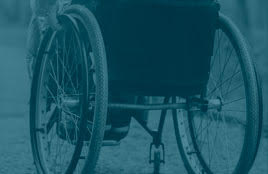The increase in international adoptions has given rise to an underground market of adoptive parents looking to relocate unwanted adopted children who may have special needs from previous neglect and abuse. Re-homings are unregulated custody transfers of unwanted children that are often initiated through online bulletin boards. Giving away children can be shockingly easy with children being sent to new homes through a basic power of attorney. Not surprisingly, the advertisements to place unwanted children are trolled by pedophiles and those looking to exploit vulnerable children. Often re-homed children are subject to physical, sexual and emotional abuse by their new caretakers.
There is an Interstate Compact on the Placement of Children or (ICPC) which requires parents to notify authorities if a child is to be transferred to a new family in a different state. Unfortunately, the ICPC is largely ignored. Some states are now banning and criminalizing the advertisement of children for adoption or other custody transfers.
Criminalizing the underground trading of children does not fix the problem although it certainly can help to deter the conduct. Problems surface when adoption agencies do not properly screen and assess adoptive parents or do not disclose the child’s special needs which often arise from neglect or mistreatment by birth parents and international orphanages. The problems can be overwhelming with children becoming abusive and violent toward other household members.
While the image of dumping kids with strangers sounds reprehensible, the focus should be on prevention. The pre-adoption screening process needs to be overhauled and improved. Thorough and detailed home studies should be conducted by adoption agencies to ensure prospective adoptive parents have the resources to ensure proper care and that they are not taking on more than they can handle. Additionally, adoption agencies have to do a better job of assessing and planning for the special needs of children who may have been subjected to abuse and neglect. There is also a need for more safeguards and access to support services to prevent the relinquishment of custody by parents who feel they have run out of options.






